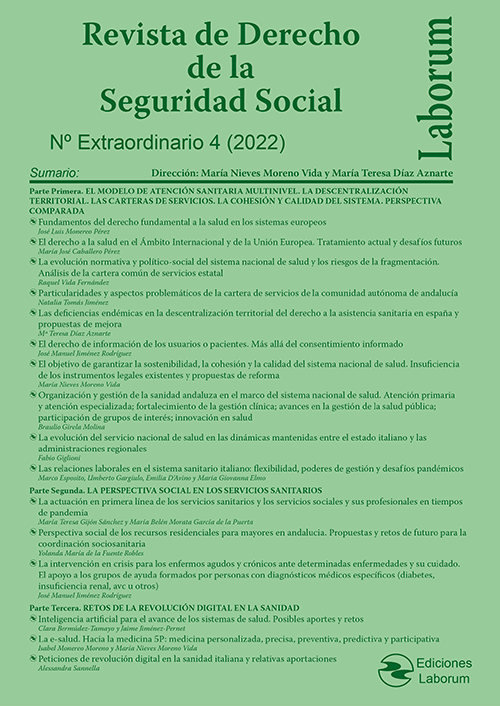Artificial intelligence for the advancement of health systems. Possible contributions and challenges
Abstract
The increasing availability of large data sets and new analytical methods, coupled with simultaneous advances in information technology (ICT) infrastructure and mobile population coverage, have given rise to the hope that AI will address future health challenges. AI can use sophisticated algorithms to “learn” characteristics of a large volume of health data and use the knowledge gained to support clinical practice. It may also be equipped with learning and self-correcting capabilities to improve accuracy based on the information received. AI devices used in health can be divided into two main categories: Machine Learning (ML) techniques that analyze structured data such as image, genetic, and electrophysiological data, which attempt to group patient traits or infer the probability of disease outcomes, and natural language processing (NLP) methods that extract information from unstructured data such as clinical notes/medical journals to supplement and enrich structured medical data. Current limitations of iHealth and eHealth in general include financial costs, cultural, language and literacy barriers, power supply problems, data security, and privacy issues. Healthcare jobs most likely to be automated appear to be those where part of their tasks involves the management of digital information, such as radiology and pathology. contrary to those based on human relationships and direct contact with patients.














